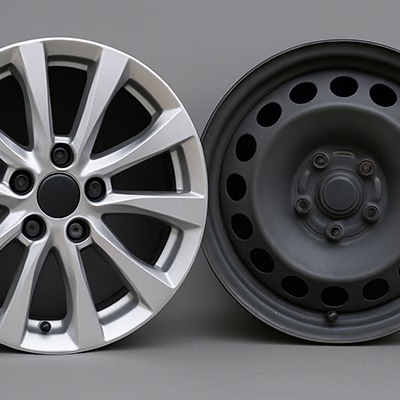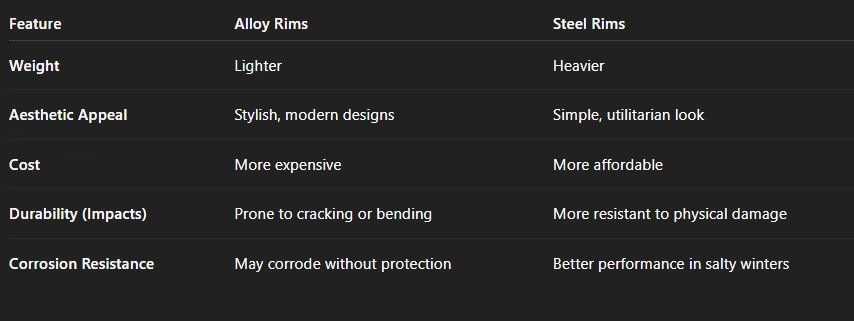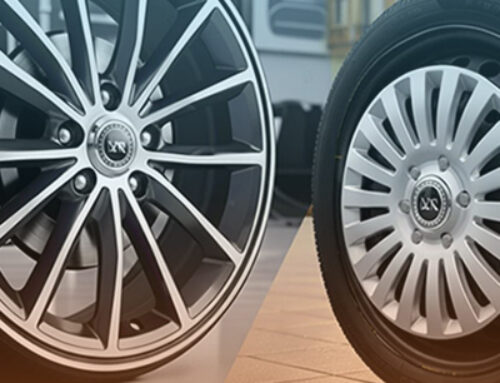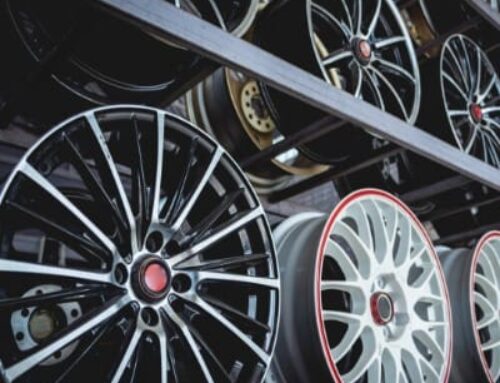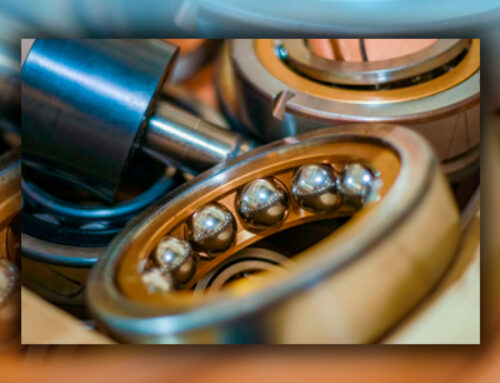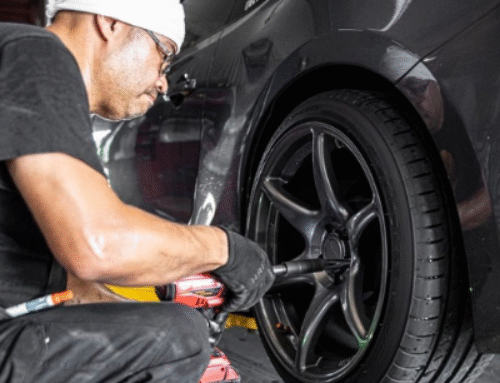Alloy vs. Steel Rims: Pros and Cons for Your Vehicle
When it comes to upgrading or replacing your car’s wheels, the “alloy vs steel rims” debate is one of the first questions drivers face. Both options come with their own set of benefits and trade-offs, and the right choice depends on your driving habits, climate, budget, and vehicle type.
This guide will help you understand the differences and confidently choose the best option for your ride.
What Are Alloy Rims?
Alloy rims are made from a blend of lightweight metals, most commonly aluminum or magnesium. They’ve become increasingly popular in modern vehicles for several reasons:
-
Lighter Weight: Alloy wheels reduce unsprung weight, improving handling and fuel efficiency.
-
Stylish Designs: They come in a wide range of sleek, modern styles.
-
Better Heat Dissipation: Helps with braking performance under high temperatures.
Recommended for: Drivers who prioritize performance, aesthetics, and fuel economy—especially in sports cars, luxury vehicles, or daily commuters in mild climates.
What Are Steel Rims?
Steel rims are composed of pressed and welded iron and carbon alloy, making them tough and affordable. While heavier and less attractive than alloy wheels, they’re known for durability.
-
Strength: Resistant to bending, making them ideal for potholes or rough roads.
-
Lower Cost: A great option for budget-conscious drivers.
-
Reliable in Winter: Less prone to corrosion when paired with proper coatings.
Recommended for: Commercial vehicles, winter driving, or anyone seeking a reliable, rugged rim with minimal styling concerns.
Alloy vs Steel Rims: Pros and Cons
Here’s a quick comparison to help you see the differences at a glance:
Which Should You Choose?
Your choice depends on your driving style and environment:
-
Go for alloy rims if you value aesthetics, smoother handling, and efficiency in urban or performance driving.
-
Choose steel rims if you prioritize durability, cost-efficiency, or live in a region with harsh winter conditions.
Always consider how much driving you do, the terrain you cover, and whether aesthetics or function matter more for your needs.
Frequently Asked Questions
✅ What is better, alloy or steel rims?
➡️ It depends on your priorities: alloy is lighter and better-looking, steel is tougher and cheaper.
✅ Do steel rims last longer than alloy rims?
➡️ In rugged conditions or winter, yes. Otherwise, both can last long with proper care.
✅ Are alloy wheels good for winter?
➡️ Not ideal without protection—salt can cause corrosion. Steel performs better in snow and slush.
✅ Can you switch from steel rims to alloy?
➡️ Yes, but ensure the bolt pattern, offset, and size match your vehicle specs.
✅ Which is safer: alloy or steel?
➡️ Both are safe when in good condition. Steel may be safer in impact-heavy environments due to its toughness.
Choosing between alloy vs steel rims is about balancing style, strength, and suitability for your driving environment. By understanding the key differences, you can make an informed choice that enhances both your vehicle’s performance and appearance.

